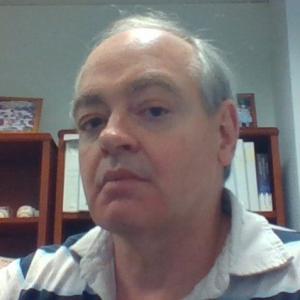Economic and Energy Consultant Dr. Richard Benjamin to be Featured on Close Up Radio
GAMBRILLS, MARYLAND, UNITED STATES, February 26, 2024 /EINPresswire.com/ -- Our guest Dr. Richard Benjamin takes great pride in solving complex problems, by taking them and breaking them down. One of the big issues of our time is energy, with everyone debating problems, solutions and how to implement them. Taking a more agnostic approach with research, Dr. Benjamin objectively examines the problems and solutions regarding more specifically the issue of variable energy sources. This is his story.
Dr. Richard Benjamin is currently doing economic consulting in the realm of energy. This encompasses various sub-disciplines within energy economics.
Dr. Benjamin’s background is in both energy and economics. “I became interested in economics my sophomore year of college,” recalls Dr. Benjamin. “After receiving my undergraduate, I then commenced a graduate study in economics. I ultimately received my PhD in Economics from the University of Illinois in 1997. I started out as a natural resource economist. Within a short amount of time, I switched over to energy economics. I have been involved in energy economics – energy regulation specifically – ever since 2001.” From 2001 to 2004, he worked as an economist at the Electricity Analysis Office of the California Energy Commission. His interest in energy stemmed from the California energy crisis and grew into full bloom thereafter. From 2004 to 2022, he also worked as an economist, but at OEMR-West for the Federal Energy Regulatory Commission. Since 2022, he has been working independently in the private sector as an independent energy consultant.
Currently, his focus is on the development of renewable energy resources. He plans to offer a research proposal to optimize the integration of variable, renewable, energy resources on electric grid operations. The paper in which Dr. Benjamin intends to do this is titled Optimal Pacing of the Energy Transition. He plans to submit it to energy publications, with the goal that it will also be seen by politicians, academia, and especially the general public.
“It’s regarding the necessity of firming up variable and renewable energy resources, such as wind and solar, through technologies such as energy storage while maintaining enough natural-gas-fired electrical generation to ensure the reliable transition of the grid to greater renewable penetration,” explains Dr. Benjamin. “The most basic issue that the world is dealing with right now is the transition to renewable energy in hope of attaining a lower carbon footprint. The issue is regarding energy windmills and solar and having so much renewable energy being produced on the grid. With renewable energy, the issue is variability. For instance, you get solar power, when the sun is up high in the sky, and when it becomes night, there is no solar generation, and no power. Wind output is also highly variable and more unpredictable. The wind blows when it blows. These sources give rise to a highly variable output stream. Fossil fuels and nuclear energy offer a more consistent energy output. With renewables, you need to have a backup generation available to pick up the slack that wind and solar create when you aren’t getting much energy from them. That puts more stress on fossil fuel facilities, as they need to constantly ramp up and ramp down energy output to meet the demand for electricity in that area.”
“We have put the cart before the horse when it comes to renewable generation,” adds Dr. Benjamin. “Different regions are rushing to 100% renewable energy without giving sufficient attention to system reliability. It’s necessary to increasingly firm up renewable electricity generation as renewable output increases. While states recognize this problem, they simultaneously advocate counterproductive policies which may cause premature retirement of fossil generation or reliance of costly out-of-market solutions.”
“I want to remain neutral as an economist,” declares Dr. Benjamin. “I am a pro-reliable electricity generation economist. I am not taking sides as to one specific source over another.”
“It’s not necessary that we be in a great rush that we reach a certain amount of renewable energy usage within a specific timeline,” concludes Dr. Benjamin. “The transition needs to take place at its own speed. That speed should be determined by factors other than carbon footprint. It should depend on technological and economic factors.”
Close Up Radio will feature Dr. Richard Benjamin in an interview with Doug Llewelyn on Wednesday February 28th at 1pm Eastern
Listen to the show on BlogTalkRadio
If you have any questions for our guest, please call (347) 996-3389
For more information, please visit his page on LinkedIn
Lou Ceparano
Close Up Television & Radio
+1 631-850-3314
email us here
Visit us on social media:
Facebook
Legal Disclaimer:
EIN Presswire provides this news content "as is" without warranty of any kind. We do not accept any responsibility or liability for the accuracy, content, images, videos, licenses, completeness, legality, or reliability of the information contained in this article. If you have any complaints or copyright issues related to this article, kindly contact the author above.

